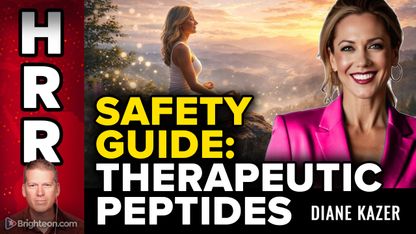
The study, which was led by Monash University in Melbourne, involved thousands of volunteers from Australia and the United States. The study ran for more than six years and the findings were published in the journal Lancet Regional Health Western Pacific.
Cholesterol is a lipid or a waxy type of fat. It is produced by the liver, but people can also receive cholesterol by consuming it from food products from animals, and the ingested cholesterol is then transported throughout the body by blood.
The body needs cholesterol to:
- Help form cell membrane layers
- Help the liver make bile for digestion
- Produce certain hormones
- Produce vitamin D
There are two primary types of cholesterol: High-density lipoprotein (HDL) and low-density lipoprotein (LDL).
Very low-density lipoproteins are a third type of cholesterol that carry triglycerides or the fat the body stores up and uses for energy between meals.
LDL is called bad cholesterol because it can build up on the walls of blood vessels, which then narrow the passageways. If a blood clot forms and gets stuck in one of these narrowed passageways, it can trigger a heart attack or a stroke.
HDL is often called good cholesterol because it absorbs other types of cholesterol and carries them away from arteries and back to the liver, which then eliminates it from the body. Additionally, HDL cholesterol is called "good" cholesterol because it can remove other types of cholesterol from the bloodstream.
HDL: Good or bad for overall health?
While conducting the study, scientists recorded 850 incidences of dementia in 18,668 participants. The research team discovered that volunteers with high HDL cholesterol of more than 80 milligrams per deciliter had a 27 percent greater risk of dementia.
They also reported that there was a 42 percent increase in dementia risk for volunteers older than 75.
High HDL cholesterol was linked to an increased risk of all-cause dementia in both middle-aged and older individuals.
"The association appears strongest in those 75 years and above," explained the researchers.
Even considering different variables such as country, age, sex, daily exercise, education, alcohol consumption and weight change over time, the researchers advised that the link between high HDL cholesterol and dementia remained "significant." (Related: Study: Life’s Essential 8 could help you live healthier longer.)
Monira Hussain, a senior research fellow at Monash University's School of Public Health and Preventive Medicine, said the study findings can be used to help improve understanding of dementia, but more research is needed.
Hussain said while it has been confirmed that HDL cholesterol has a crucial role in cardiovascular health, the study suggests that continued research can help shed more light on the "role of very high HDL cholesterol in the context of brain health."
Hussain added that it is worth considering very high HDL cholesterol levels in prediction algorithms for dementia risk.
Researchers recruited a larger cohort for the HDL/dementia risk study
For the study, the research team recruited 16,703 Australians older than 70 years, along with 2,411 people older than 65 years from the United States.
The volunteers examined during the research had no physical disability, cardiovascular disease, dementia, or life-threatening illness at the time of recruitment for the study. They were also "cognitively healthy."
According to the scientists, while several studies have indicated a connection between HDL cholesterol and adverse health events, evidence regarding its connection to dementia remains unknown.
The researchers said an analysis of a medical database examining the link between high HDL cholesterol and dementia revealed that there was only one study from Denmark that established a link.
"Only one study of cohorts from Denmark was identified which suggested that high HDL-C is associated with dementia in people aged 47–68 years," said the scientists.
Because early-onset dementia may have a different pathophysiology than late-onset dementia, the researchers advised that it is important to extend these results to well-characterized prospective studies of older individuals who are cognitively intact at the study onset.
The data analysis was conducted between October 2022 and January 2023, before publishing the study.
The scientists said their study is the "most comprehensive study" to report high HDL cholesterol and the risk of dementia in the elderly.
Watch the video below as Dr. Zoe Harcombe dispels myths about fiber, fat and cholesterol.
This video is from the DC Learning to Live channel on Brighteon.com.
More related stories:
Experts say LDL cholesterol may not be as bad as previously believed.
Study: Older adults who regularly use the internet have LESS DEMENTIA RISK than non-regular users.
Study: Microplastics accumulate in the brain and cause behavioral changes associated with dementia.
Sources include:
Please contact us for more information.






















